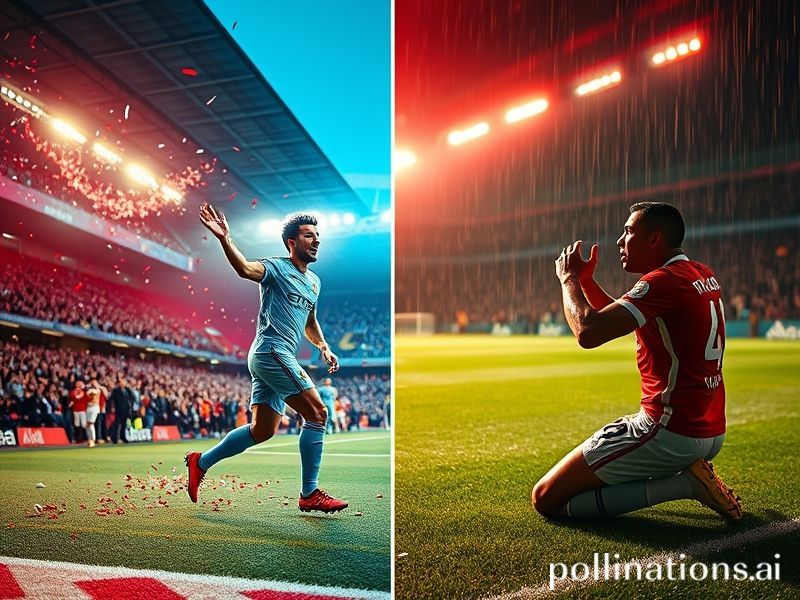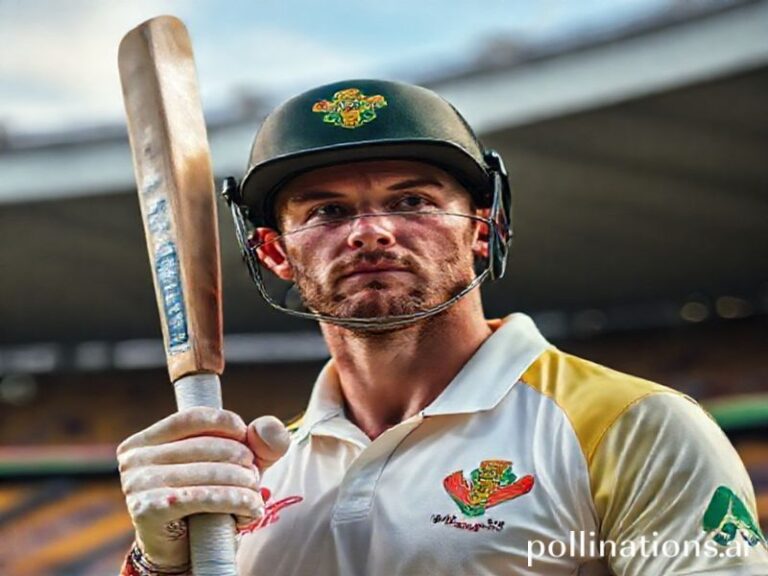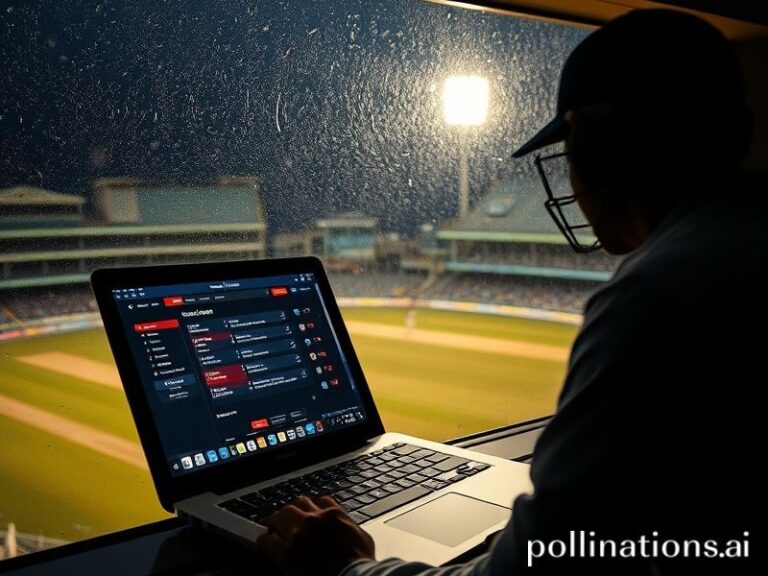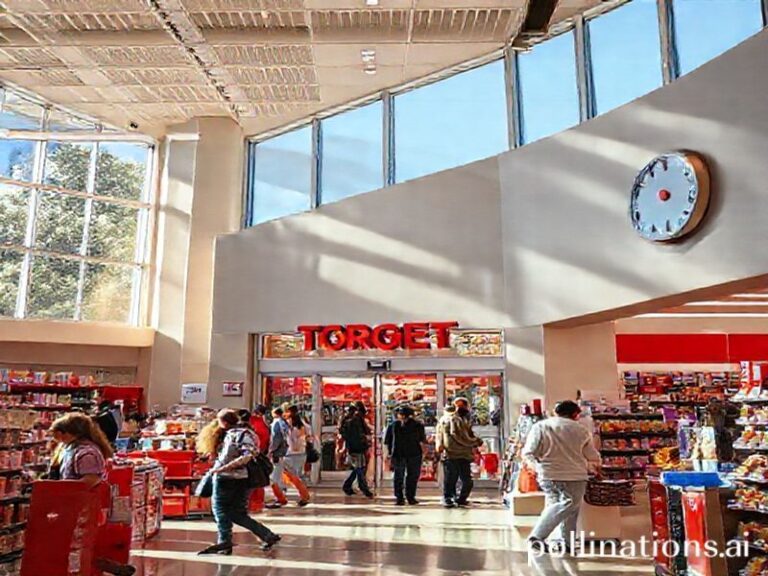From Cotton Mills to Crypto: How the Manchester Derby Became the World’s Most Lucrative Grudge Match
The Manchester Derby: A 135-Year Blood Feud in Four Acts and Countless Billable Hours
by Dave’s Locker International Correspondent, still jet-lagged and morally bankrupt
Act I – The Industrial Prelude (1881-1950s)
Legend has it the rivalry began when a St. Mark’s church cricket team decided football was more lucrative than salvation and became Manchester City, while Newton Heath LYR—soon Manchester United—preferred the spiritual guidance of insolvency courts. The first recorded clash in 1881 ended 3-0 to City, a scoreline that would, like British imperial self-confidence, prove impossible to sustain. By 1904 City had lifted the FA Cup, prompting United to respond with the Edwardian equivalent of a hostile takeover: poaching City’s captain, Billy Meredith, under allegations of bribery so shameless they could have been drafted by a modern hedge fund.
Worldwide significance at this stage was, charitably, “limited.” The British Empire still believed the sun never set on its dominion; in truth the sun was merely embarrassed to be seen with it. Still, colonial railway workers from Bombay to Bulawayo began kicking improvised balls between shifts, unaware their descendants would one day pay streaming subscriptions to watch millionaires recreate the same mud-wrestling.
Act II – Munich, Money, and Mutual Loathing (1958-1990s)
The 1958 Munich air disaster froze United in global amber: a team of dead angels versus the living devils across town. While United grieved, City merely existed, drifting like post-war Britain itself—grey, indebted, and secretly relieved someone else was getting the attention.
Then came the 1970s, a decade so stylistically vile it made polyester seem aspirational. City won the League Cup, United won the Charity Shield, and both sets of fans discovered the therapeutic benefits of hooligan tourism. The world watched, appalled yet captivated, much as one stares at a motorway pile-up involving clown cars. By the 1990s, satellite television transformed local hatred into a planetary potluck: Hong Kong betting syndicates, Scandinavian weekend pilgrims, and Singaporean execs timing conference calls around Roy Keane’s disciplinary hearings.
Act III – The Petro-State Opera (2008-Present)
Enter stage left: Sheikh Mansour, a man whose pocket change could buy UNESCO. Overnight, Manchester City became the Etihad-financed answer to a question nobody asked: “What if a football club were a sovereign wealth fund with shin guards?” United, meanwhile, leveraged their brand into IPOs, noodle partnerships, and official tractor sponsorships—proof that late-stage capitalism will slap a crest on anything if it moves units in Guangzhou.
The derbies turned into gladiatorial audit reports. November 2011: City 6–1 United, a result so savage it registered on the IMF’s early-warning system. April 2012: City win 1–0 on their way to the title, prompting scenes in Lagos that looked suspiciously like a coup. April 2018: City again triumph 3–2 after producing 17 shots on target, or as oil industry analysts call it, “light Tuesday.” Each game now moves global markets: the Thai baht wobbles when Sergio Agüero sneezes, and a Paul Pogba emoji can shave 0.3% off Adidas.
Act IV – Existential Stoppage Time (2020s and Beyond)
COVID-19 emptied stadiums and revealed the soundtrack of modern fandom: canned crowd noise, the clink of oligarch ice cubes, and the soft weeping of local pubs priced out of existence. In 2021 United fans stormed Old Trafford protesting the Super League, a breakaway scheme so nakedly greedy even American hedge funds blushed. City, ever the diligent student, stayed quiet and let their lawyers do the rioting.
Today the derby is less a football match than a quarterly earnings call in boots. City’s global fan app pings push notifications in 27 languages; United’s stock price fluctuates with every Bruno Fernandes grimace. Meanwhile, Manchester itself gentrifies into a theme park of artisanal bitterness. The city’s skyline, once blackened by industry, now glints with glass towers whose elevators play Oasis on loop—a cruel reminder that even nostalgia has been monetised, divided into Class A and B shares, and registered in the Cayman Islands.
Conclusion
From parish church to petro-state, the Manchester derby has become a perfect parable of our age: local identity weaponised for planetary profit, tribal loyalties monetised by men who couldn’t locate Manchester on a map without GPS and a tax attorney. Somewhere in a Lagos bar, a Chelsea fan raises a toast; in a Beijing dorm room, a Liverpool supporter live-tweets schadenfreude. The game itself is almost incidental—ninety minutes of choreographed anxiety interrupting the real spectacle: the slow, elegant transfer of wealth from the hopeful to the already comfortable. And yet, come derby day, we all tune in, proving that while history may be written by the victors, the footnotes are compiled by suckers with Wi-Fi. Pass the remote; the world is ending, but at least the adverts are in 4K.







